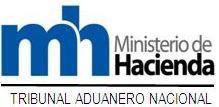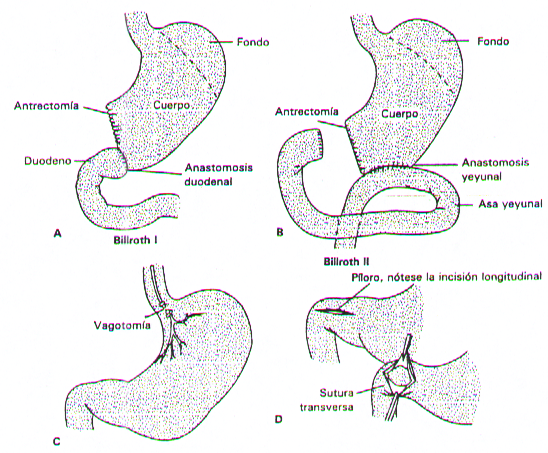___________________________________________________________________________ 2007/som3012attb3rev1 agenda item: v conduct prin
___________________________________________________________________________
2007/SOM3012attB3rev1
Agenda Item: V
Conduct Principles for Public Officials
Purpose: Consideration
Submitted by: ACT Chair
Third Senior Officials’ Meeting
Cairns, Australia
3 July 2007
APEC Conduct Principles for Public Officials
At the 14th Economic Leaders’ meeting held in Hanoi in 2006, leaders
reaffirmed their high commitment to fight corruption and usher in a
community of integrity. Similarly, in 2006, APEC Ministers stressed
the importance of preventive measures and integrity systems in the
fight against corruption and urged member economies to adopt and
implement codes or norms of conduct that are aligned, as appropriate,
with the UN Convention Against Corruption.
That Convention requires parties to promote integrity, honesty and
responsibility among
their public officials. In particular parties are to endeavor to apply
codes or standards of conduct for the correct, honorable and proper
performance of public functions.
Taking into consideration the UN International Code of Conduct for
Public Officials, and further informed by the UN Convention Against
Corruption, the APEC Anti- Corruption Task Force recommends member
economies establish, enhance or review to ensure that their
legislative and/or administrative codes or standards of conduct for
all public officials, as defined by national and international law,
are based upon the following principles:
1. A public official shall respect and adhere to the Constitution or
basic law and the laws and legal norms of his or her economy including
applicable codes of conduct.
2. A public official shall use his or her public position only in
furtherance of the public interest and not for purposes of gaining an
unwarranted advantage for him- or herself or for others.
3. A public official shall not solicit or receive, directly or
indirectly, any gift, favor or benefit in exchange for official action
or inaction, or that may influence or appear to influence the exercise
of his or her functions, duties or judgment.
4. A public official shall protect and conserve public monies,
property and services and shall use these public resources for only
authorized purposes.
5. A public official shall disclose information that is available to
him or her by virtue of official position in accordance with the
economy’s applicable transparency norms, but should use such
information only for authorized purposes.
6. A public official shall perform his or her duties with efficiency,
integrity, fairness and impartiality, including when performing a
legitimate political or other activity.
7. A public official shall avoid taking any official actions that will
affect his or her personal or family financial interests, or acquire
any position or function or have any financial, commercial, fiduciary
or other comparable interest that conflicts or may reasonably appear
to conflict with his or her office, functions and duties.
8. A public official shall respect and utilize established measures
and systems designed to facilitate reporting acts of corruption to
appropriate authorities and shall, if within his or her official
responsibilities, hold others properly accountable for their actions.
9. A public official shall adhere to all requirements for reporting to
appropriate authorities his or her outside activities, employment,
financial investments and liabilities, assets and gifts or benefits.
10. A public official shall comply with measures established by law or
administrative policies in order that after leaving an official
position he or she will not take improper advantage of that previous
office.
Consistent with the UNCAC and the APEC Santiago Course of Action, APEC
economies shall, according to their capacities, afford one another the
widest measure of technical assistance in helping to develop these
legal norms and codes or standards of conduct. Member economies shall
make every effort to provide public officials with the education,
training and counseling necessary for their understanding and
appreciation of these principles as well as the various legal norms
and codes or standards of conduct that implement these principles. To
help create mutual expectations between officials and the public,
member economies should publicize the legal norms and codes or
standards of conduct. Member economies shall also institute
appropriate measures aimed at rectifying the conduct of individuals
who fail to abide by and implement these principles.
 PHY121 CH 69 EXAM NAME YOU ARE A MEMBER
PHY121 CH 69 EXAM NAME YOU ARE A MEMBER EXPEDIENTE N° 359 2013 VOTO N° 130
EXPEDIENTE N° 359 2013 VOTO N° 130  UNIVERSITAT JAUME I ÁREA DE PSICOLOGÍA EVOLUTIVA Y DE
UNIVERSITAT JAUME I ÁREA DE PSICOLOGÍA EVOLUTIVA Y DE AINS IZBORI 2012 ODELJENJE ELEKTROTEHNIČKIH NAUKA INOSTRANI ČLAN
AINS IZBORI 2012 ODELJENJE ELEKTROTEHNIČKIH NAUKA INOSTRANI ČLAN EI01A PRAVILA ŠAHA PREVEO BRANISLAV ŠUHARTOVIĆ IA LEKTOR NJEGIĆ
EI01A PRAVILA ŠAHA PREVEO BRANISLAV ŠUHARTOVIĆ IA LEKTOR NJEGIĆ EL MUSEO DE NAVARRA EXPONE LA OBRA DE CIGA
EL MUSEO DE NAVARRA EXPONE LA OBRA DE CIGA ARCHIVED INFORMATION PLANNING AND EVALUATION SERVICE SCHOOL CRIME PATTERNS
ARCHIVED INFORMATION PLANNING AND EVALUATION SERVICE SCHOOL CRIME PATTERNS DESCRIPCIÓN Y EVALUACIÓN DE UN SISTEMA DE QOCHAS EN
DESCRIPCIÓN Y EVALUACIÓN DE UN SISTEMA DE QOCHAS EN SISTEMA DIGESTIVO ANATOMIA Y FISIOLOGIA CAVIDAD ORAL
SISTEMA DIGESTIVO ANATOMIA Y FISIOLOGIA CAVIDAD ORAL TERESA PÉREZ FRACÉS PRESENTACIÓN DE LA EXPERIENCIA EL PROYECTO
TERESA PÉREZ FRACÉS PRESENTACIÓN DE LA EXPERIENCIA EL PROYECTO